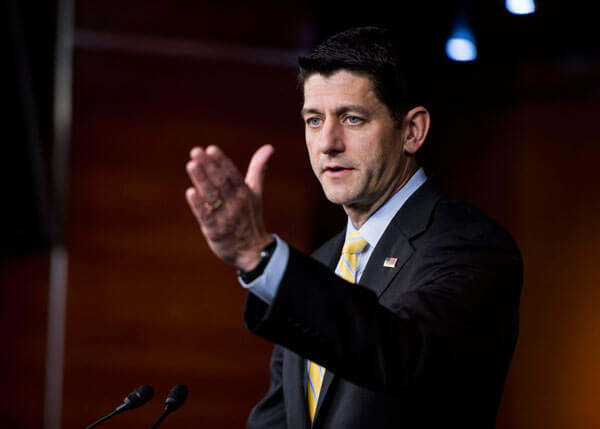Zika virus funding will have to wait until after mosquito season ends this summer.
So says Republicans in Congress.
Despite the fact President Barack Obama requested emergency funding two months ago asking an allotment of $1.9 billion to help combat the dreaded tropical Zika virus, last week top officials in Congress announced that a decision to fund the initiative will not be made until September.
With Congress slated to take a seven-week vacation this July and August, Zika funding will add to the many initiatives delayed by Republicans determined to frustrate Democrats.
Josh Earnest, White House press secretary denounced Congressional Republicans for failing to act on approval of the funds.
“At some point, they’re going to have to choose whether or not their animosity toward President Obama trumps their desire to try and protect pregnant women in their states from this terrible disease,” Earnest said.
White House budget director Shaun Donovan said, “Given the uncertainty and the risks, we should not play with fire here.”
Congress needs to act immediately. We cannot wait. There are activities that we cannot start now. There are activities in the coming months that we may need to stop doing,”
As temperatures rise to peak mosquito breeding season, congressional Republicans are claiming that the White House is “politicizing” the Zika virus.
Resigned to the fact of an impending health emergency, some Republicans believe there is no urgency to fund research or even allot moneys to the initiative.
Paul Ryan, Republican speaker from Wisconsin said the House “will address this situation through the regular appropriations process as the need arises, and our appropriators are looking at how to do just that.”
Hal Rogers, Republican House Appropriations Committee chairman from Kentucky, said he needs more budgetary information from the administration to address the crisis.
“I can’t in good conscience and out of respect for the taxpayer support a full request without proper information, without justification.”
There are currently 346 cases of the Zika virus in the continental United States.
Health officials are saying that that number could rapidly rise as the number of mosquito bites increase. Out of the total cases, 32 were pregnant women, while seven of them acquired the virus through sexual activity.
In addition with newly released findings that the mosquito species responsible for transmitting the virus, is now in 30 U.S. states — and not 12 as previously reportedly — chances are that there is a growing escalation and the disease could quickly rise to epidemic proportions.
Once thought of as a disease that can easily be contained, the Zika virus is now considered “scarier” than expected.
“Most of what we’ve learned is not reassuring,” Dr. Anne Schuchat from the Centers for Disease Control and Prevention explained during a recent White House briefing.
“Everything we know about this virus seems to be scarier than we initially thought.”
Already a nuisance throughout the Caribbean, countries in South America and in parts of Africa and Asia, the CDC recently confirmed that the virus is linked to various birth defects — particularly microcephaly — a condition that causes a child’s brain to be smaller than the normal size.
Miscarriage and other complications have also been attributed to the virus.
Not to be totally resistant to the president’s plan to stop the disease, some Republicans offered a concession to agree to the administration diverting $600 million in unspent Ebola funding.
“The administration is already moving ahead with the funds that were appropriated for Ebola,” Senate Majority Leader Mitch McConnell, R-Ky. said.
“And we’re anxious to talk to them any time they think there’s additional need.”
Keep in mind it was McConnell who vociferously stated that if he had his way the first Black president would not serve two terms in the White House. He vowed to dedicate all his effort to ensuring that Obama would be a one-term leader.
Obama proved him wrong and is now in the final six months of an eight-year tenure after being re-elected to serving a second term in the White house.
“Ebola is not over,” Dr. Tom Frieden, the director of the CDC said.
He said there are still 84 CDC staffers in West Africa dealing with the aftermath of the outbreak, and earlier this year there was an Ebola case in Sierra Leone.
More convincing to Dr. Frieden’s argument was his reminder that Ebola funding was intended to help CDC work over five years to strengthen health systems in those countries. Federal health officials have also been telling Congress that most of the Ebola funds available are still needed for various projects, including strengthening the health systems of African countries to prevent future infectious disease outbreaks.
He added that even though Ebola has become a far less urgent problem, the infectious disease has not disappeared.
Dr. Anthony Fauci, director of the National Institute of Allergy and Infectious Diseases, bolstered those assertions saying that the National Institutes of Health’s share of the Ebola money was $238 million, and that only $9 million is left.
He said those funds are needed for research on Ebola survivors and the development of an Ebola vaccine.
In the meantime, Fauci said, in order to suppress the virus he has been borrowing money from other programs to start research into a possible Zika virus vaccine. However, that strategy was implemented with the hope Congress would soon approve the president’s request.
“We’re using money that we have to shift around from other places. We don’t have any really substantial money that’s left on Ebola,” he said.
As for the summer Olympics in Brazil, health officials are advising pregnant women to reconsider plans of attending the summer games.
In a travel advisory the CDC said women who are pregnant in any trimester should “consider not going to the Olympics.”
The agency’s website showed a total of 107 travel-related Zika cases reported in the United States, minus its territories, but as yet no locally acquired cases.
The agency also recommended, “If you have a male partner who goes to the Olympics, either use condoms or abstain from sex for the duration of your pregnancy.”
An estimated 500,000 people are expected to visit Brazil for the Olympic Games in Rio de Janeiro from Aug. 5 to Aug. 21 and the potential influx of visitors to the most infected country in South America could increase the spread of the disease throughout the world.
Some researchers believe that the virus arrived in Brazil during the 2014 World Cup.
Philip Wilkinson, a spokesman for the Rio 2016 organizing committee offered consolation to athletes concerned about the epidemic. He said Brazil has already acted to help ward off the stinging insects by installing screens in communal areas “where required.”
If athletes are concerned about being infected, screens can be affixed to lodgings but national delegations will have to pay for the installation.
Meanwhile, Democrats are lobbying to win over Republicans on the idea of approving emergency funding prior to the games and before the mosquitoes swarm the nation.
Catch You On The Inside!

























